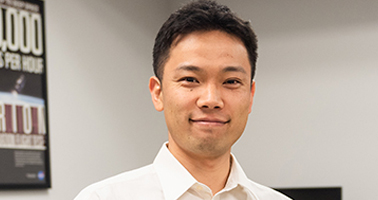Past Event: Oden Institute Seminar
Takashi Tanaka, Assistant Professor, ASE/EM Department, Oden Institute, UT Austin
3:30 – 5PM
Thursday Oct 6, 2022
POB 6.304 & Zoom
Continuous-time stochastic optimal control (SOC) problems with chance-constraints frequently appear in motion planning scenarios for mobile robots with uncertain dynamics. In this talk, we discuss numerical approaches to solve such SOC problems using the Hamilton-Jacobi-Bellman (HJB) partial differential equations (PDEs). We first convert the chance-constrained (risk-constrained) SOC problem into a risk-minimizing SOC problem through the Lagrangian relaxation. Leveraging the time-additive Bellman structure of the resulting risk-minimizing SOC problem, we show that the problem is equivalent to solving an HJB PDE with the Dirichlet boundary condition in which the boundary condition represents the probability of failure.
We then consider a special case in which the resulting HJB PDE is linearizable via the Cole-Hopf transformation. We take an in-depth look at a Monte-Carlo-based numerical method (known as path integral control) to compute the optimal control input. We consider 2D and 3D robot navigation problems and compare solutions obtained by finite difference methods. Open problems and future research directions will also be discussed.
Takashi Tanaka is an Assistant Professor in the Department of Aerospace Engineering and Engineering Mechanics at the University of Texas at Austin since 2017. He received his B.S. degree from the University of Tokyo in 2006, M.S. and Ph.D. degrees from UIUC in 2009 and 2012, all in Aerospace Engineering. Prior to joining UT Austin, he held postdoctoral researcher positions at MIT and KTH Royal Institute of Technology. His research interest is broad in control, optimization, games, and information theory; most recently their applications to networked control systems, real-time data sharing, and strategic perception. He is the recipient of the DARPA Young Faculty Award, the AFOSR Young Investigator Program award, and the NSF Career award.
